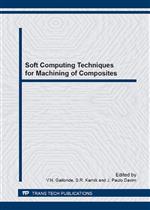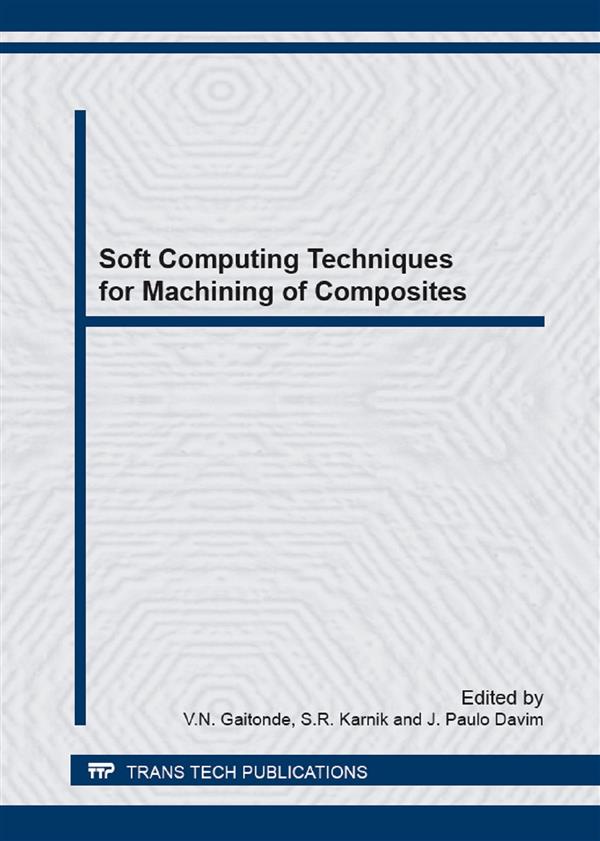Engineering Research
Materials Science
Engineering Series
Soft Computing Techniques for Machining of Composites
Description:
Even though composites are manufactured to near net shaped, machining has to be performed during the final production stage to get the finished products. Soft computing is a collection of methodologies that aim to exploit tolerance for imprecision, uncertainty and partial truth to achieve tractability, robustness and low solution cost. This special volume intends to draw a picture of the recent advances made in the soft computing assisted machinability studies for composite materials and includes the submission of high quality research articles. Suitable topics include the application to the machining (turning, drilling, milling) of the composites like metal matrix composites, fiber reinforced composites, glass epoxy polymer composites, polyamides and PEEK using various soft computing techniques such as artificial neural networks, fuzzy logic, particle swarm optimization and simulated annealing.
Purchase this book:
Info:
Review from Ringgold Inc., ProtoView:
Soft computing refers to methods that exploit tolerance for imprecision, uncertainty, and partial truth to achieve tractability, robustness, and low cost. Mechanical, industrial, and other engineers show how the approach is used in machining composites, which has different requirements than machining metal or other homogeneous material. Among their topics are applying an artificial neural networks to predict surface roughness in drilling glass fiber reinforced plastic composites, optimizing end milling parameters on aluminum/silicon-carbon composites using response surface and artificial neural network methodologies, fuzzy modeling and analysis of turning parameters for machining force and specific cutting pressure in carbon fiber reinforced plastic composites, and multi-response optimization in drilling glass epoxy polymer composites using a simulated annealing approach.

